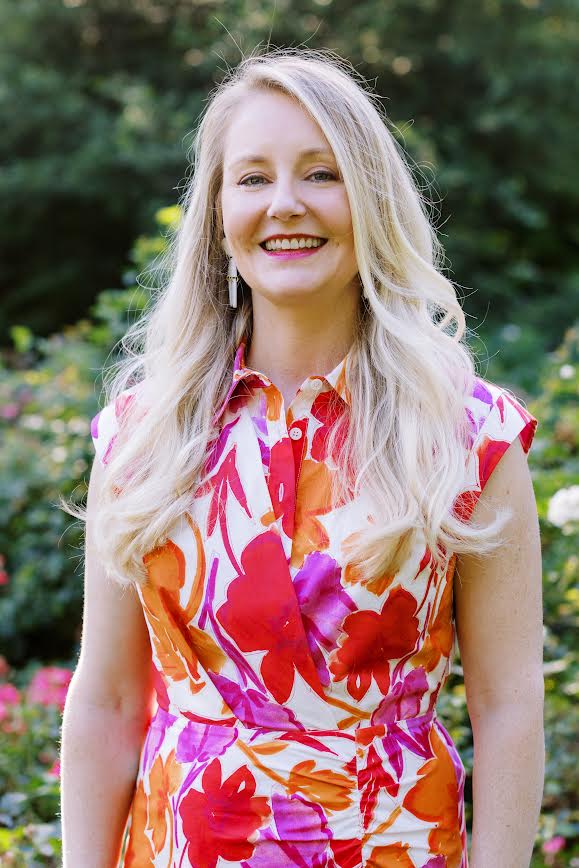5 Ways to Be Good Stewards of the Earth

When my oldest son was in the third grade, one of his school projects was to adopt a US state and learn about it. My husband and I promised to take him to the state that he chose. He picked Wyoming. Though our family trip was delayed partially due to COVID, it brought several surprises. First, it turned out to be our youngest son’s first flight; I had not even been pregnant with him when my oldest son chose the state. Second, while we expected to encounter beauty, my family of five was startled by Wyoming’s majesty. My two-year-old kept looking out the window saying, “Wow.” Third, the trip inspired us to consider our commitment to the Earth. Experiences that bring us to our knees change us. In the wake of that holy awe, here are five ways that we can be better stewards.
1. Make time to retreat.
My oldest son will tell you from his report that Wyoming is the least populated state in the union. I live in a suburb of New York City and can witness to the energy and excitement of being surrounded by others. But there is also something medicinal about being in an expanse of beautiful land where the animals outnumber the people. You can breathe freely when it is just you and the open sky; it is almost as if the mountains cradling you are lifting their praise. Getting away and getting quiet is a discipline that Jesus himself practiced (Mark 1:35). Doing it in nature is that much more inspiring. Scripture reminds us about the genesis of strength: “In quietness and trust is your strength” (Isaiah 30:15).
2. Discover nature as a biblical teacher.
As a female pastor, I have enjoyed mining the diverse scriptural names for God. The Bible gives us so many that stretch beyond gender and serve as powerful teaching tools. Many of these names come from the natural world for ease in understanding. The Psalmist describes God as a mighty Rock (Psalm 18:2), the Samaritan woman discovers that Jesus is the Living Water (John 4:10), and my favorite metaphor for Christ is the Vine (John 15:5). I learn about what it means to stay connected and grow in Christ by taking time to observe actual growth around me. I marvel at the splendid work of our Creator. Whether I witness the climbing of a vine, the flit of a butterfly, the bright red burst of a cardinal wing, or the glorious hush of a waterfall, God’s spirit is there to teach me, delight me, and remind me of his glory. The agrarian society of biblical times might have been more in touch with natural metaphors by necessity, but the lifeline they provide is only an observation away today. “Be still and know that I am God,” the Lord tells us (Psalm 46:10).
3. Use nature as a vehicle of praise.
As a mother of three children, I have seen how creation can elicit our praise and awe. Holding each of my children in my arms for the first time was one of those moments. The journey of pregnancy had ended, and new journeys of discovery had simultaneously begun. When we traveled to Grand Teton National Park, my family witnessed a mother moose nursing her new baby. They stood in a shallow stream as the baby with long, teetering legs learned to walk. Our guide told us that the baby moose was under a week old. I marveled at the innocence of birth, the cycle of life, and how God continues to make all things new. Two days earlier I had been horseback riding on a ridge with my older boys as the wind made the leaves of the mountain trees dance. Nature was reverberating with praise as the trees clapped their hands (Isaiah 55:12). The breath of the wind, the warmth of the sun, and the signs of new life renewed my spirit. I was joining an age-old praise song whose invitation lingers. The Psalmist writes, “Let the heavens rejoice, let the earth be glad; let the sea resound, and all that is in it. Let the fields be jubilant, and everything in them; let all of the trees of the forest sing for joy” (96:11–12). And Ephesians encourages, “Sing and make music from your heart to the Lord, always giving thanks to God the Father for everything, in the name of our Lord Jesus” (5:19b–20).
4. Answer the biblical call.
Our trip to Yellowstone National Park wouldn’t have been the same without the bison. We got to see one close-up, from the safety of our vehicle. It was enormous. We took a flurry of pictures trying to capture our amazement. Its massive size, enormous weight, and imposing features—from chiseled muscle to rich brown fur—were striking. It was hard to believe that an animal with such strength and history was still dependent upon humanity for survival. God entrusts all of creation to humanity’s care and stewardship in Scripture (Genesis 1:28). Our guide impressed upon us how everything is connected via a fragile ecosystem in the park. Actions have consequences, and every participant plays a part in success. I felt humbled and inspired to consider ways that I could better love our beautiful, wild creation in God’s name.
5. Impact generations to come.
When I was a little girl, I remember how much I wanted to save the Earth. I drew a cartoon based upon the three R’s—reduce, reuse, and recycle—to help encourage them. My middle son became equally concerned about the Earth recently after he learned about the danger to our oceans. He discovered the nonprofit 4 Ocean, which is dedicated to removing plastic from the ocean, and wore their recycled bracelets in support. Sometimes it’s easy for the passion of our youth to dissipate with age, but scripture tells us that the Creator is invested in creation. The Psalmist proclaims, “The earth is the Lord’s, and everything in it, the world, and all who live in it” (24:1). Experiencing nature is key to cultivating a continued respect for and attachment to it. Further, small changes to benefit the Earth will compound over time. Hundreds of millions of plastic disposable straws used to be discarded per day, often winding up in the ocean, before some companies began curbing their use, for instance. Working toward a better today not only honors God’s call, it gives subsequent generations a better tomorrow.
We had really been looking forward to our family trip to Wyoming after this difficult year due to COVID. The time that we spent together in nature was healing as we remembered to slow down, listen to God, and enjoy the magnificent yet simple pleasures around us. The lessons we learned can serve as a timely salve going forward. While a new year may bring its own challenges, refreshment awaits. The Psalmist famously finds the Lord in nature by recounting the work of the Shepherd: “He makes me lie down in green pastures, he leads me beside quiet waters, he refreshes my soul” (23:2–3a). By being good stewards of the Earth, we’re saving something that points to the One who saves us.
Photo Credit: ©GettyImages/Nastco

Originally published August 19, 2021.





